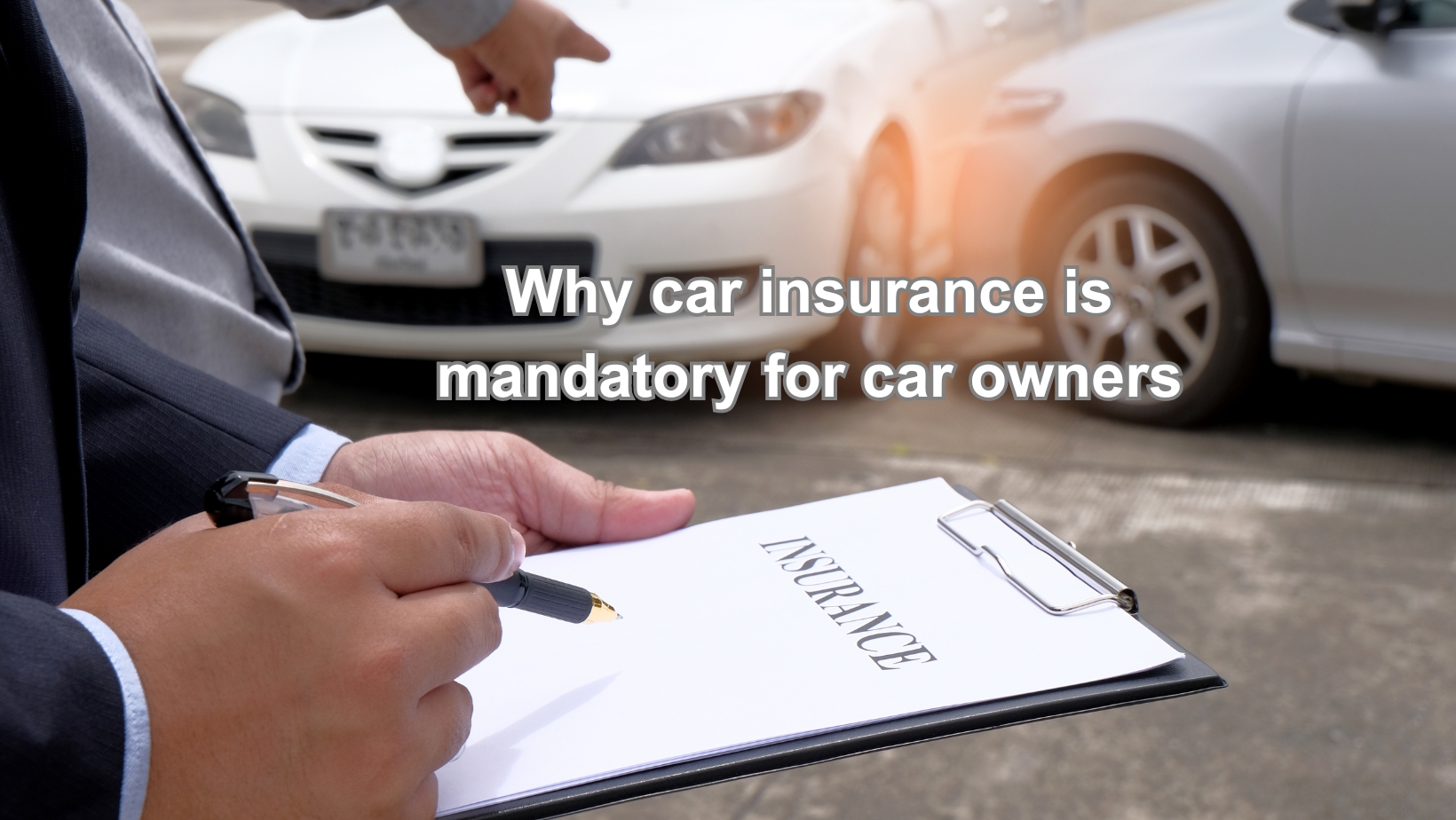Connecticut was the first state to issue automobile insurance in 1925. The constitutional state required drivers to demonstrate financial responsibility in the event of an automobile accident resulting in injury, death, and property damage. In 1927, car insurance became mandatory throughout the United States of America.
Contents
Why is car insurance compulsory?
Car insurance has been and still is one of the most affordable ways to protect a driver from having their license suspended and making the right decision in the event of a significant car accident. Mandatory auto insurance became necessary in most states in the 1970s. Massachusetts was the first state to make auto insurance mandatory for drivers in 1927 (following Connecticut’s financial requirement and premise).
Have you ever wondered why car insurance is mandatory in America? Some citizens believe that car insurance is unconstitutional. There are some rhetorical questions when it comes to compulsory car insurance.
- Does this violate the freedom granted by the Constitution?
- Why is car insurance mandatory in the first place?
Car insurance exists to protect you and your car. There is an explanation for why mandatory auto insurance does not violate the United States Constitution.

Your lender may require collision and comprehensive insurance as part of the loan agreement if you financed your vehicle. In other words, they want their financial assets to be covered by insurance: the car. With car insurance, you want to protect yourself and your property. Insurance companies and consumer advocates generally recommend bodily injury insurance of at least $100,000 per person and $300,000 per accident, since injuries can cost much more than most require States.
How do I calculate how much insurance I need?
Today, every state from Alaska to California, Indiana to New York (except New Hampshire) has minimum auto insurance requirements. When it comes to how much car insurance you should carry, there is no national guideline. To legally drive on public roads, each state has a different minimum amount of car insurance paid by drivers. In other words, the amount of coverage you legally need for car insurance depends on your state.
Do all states require drivers to have car insurance?
Car insurance is mandatory in almost all states. The only exception is New Hampshire. Drivers should purchase and maintain some form of auto insurance to remain financially and legally protected in the event of a collision or injury to another person or property. You could be breaking the law if you don’t maintain your coverage. However, some counties do not require you to carry car insurance. Instead, they require you to display some sign of your financial responsibility, such as a bond, a cash deposit with the state, or a certificate of self-insurance.
Minimum Car Insurance Requirements: How Much Coverage Do You Need?
Most insurance policies express minimum amounts as follows: 25/50/25 ($25,00/$50,000/$25,000), with the numbers corresponding to individuals:
- Injury,
- All bodily injury for a particular accident
- All property damage for a single accident.
Some states only provide insurance that covers bodily injury and property damage to others. You may need additional medical coverage, or what is also called personal injury protection, in other states. It covers health care costs you or your passengers may need after a car accident. Some states may require uninsured or underinsured auto insurance. This form of coverage is optional in other states. Collision and comprehensive coverage, while essential to your safety, remains optional no matter what state you live in.
Car insurance requirements are different, but drivers in all states need car insurance to protect themselves from liabilities arising from a car accident. However, the forms of coverage that are part of a car insurance contract should be known.
It’s essential to remember a small distinction between collision insurance and liability insurance: the former covers you, the car owner, and is not inherently necessary. However, the latter is obligatory since it requires helping others, ensuring that other citizens do not suffer damage or loss. Collision insurance protects against fire, burglary, vandalism, and more. — and is not necessary if/when the car is paid for.
On the other hand, liability insurance, which protects others and their property, is almost always mandatory. It is assumed that others – and at the same time, the economy – will be affected by the inability of drivers to compensate others for losses.
Are you looking for the best car insurance quotes?
It’s always helpful to learn about your state’s unique auto liability laws, especially as you decide what type of auto insurance coverage is right for you. Many insurers work tirelessly to find the best quotes for your specific needs.
Taking out car insurance for your dream car will save you from falling into financial difficulties. In addition, you are assured of peace of mind. Always take car insurance with the required coverage plans if you intend to buy a car. Start your search for the best car insurance quotes by tapping the banner below.
If you want to insure a car without your name, you could face multiple problems. But fortunately, there are some cases where it may be appropriate, such as if you are driving a family member’s car. But can you insure a car without your name? Let’s talk about it!
Why do people insure their car in someone else’s name?
It’s quite common for high-risk drivers to ask their loved ones with a better driving record to insure their car for them. This results in a lower premium for the high-risk driver, but the premium charged does not adequately assess the risk posed by the high-risk driver. But in the long run, this could result in higher rates for everyone insured with that particular insurance company.
Live at the same address
Simply let the insurance company know that you live at the same address as the car owner and you can seal the deal. However, getting the same address might be a problem for you.
Co-titling
Get partial ownership by jointly titling the car, that is, adding your name as a partial owner to your car’s title. Most likely, you and the car owner will need to apply for a new title together. You must pay a fee and go to the DMV to sign the title in person. Insurance premiums will always increase when someone else is added to the policy. In fact, some insurers don’t even allow joint insurance unless the people listed on the policy live together.

Insurable interest
When developing insurance policies, insurance companies seek to charge this insurable interest. Ownership of the vehicle constitutes an insurable interest because the motivation is that the car was an investment for the owner. If you don’t own the vehicle, insurance companies are usually a little suspicious because this tactic is so often used for fraud. When you buy car insurance, you must provide insurable interest. You must have a “pink slip” of a vehicle which represents some form of registration or title. Without this “pink slip”, it is more difficult to demonstrate insurable interest.
What alternatives do you have if you are unable to insure a car?
- Have a car transferred to your name. Depending on your relationship with the car owner, you may be able to have them transfer the vehicle title to your name. You thus become the legal owner of the car and can easily insure it.
- Use other means of transportation. Do you live in an urban area? If so, there are usually plenty of public transportation options. Otherwise, taxi, Uber/Lyft is another good option for you.
Non-owner insurance
These policies are for those who drive someone else’s car without having their own insurance. However, non-owner insurance coverage is very limited. Features such as collision and comprehensive coverage or anything else designed to protect the vehicle are not included.
Information needed to take out non-owner car insurance:
- The agreement of your insurance company. Your insurance company must agree to add a vehicle to your existing policy. Not all companies will do this, so you may need to look for a new insurance company.
- Vehicle Identification Number (VIN). This information will ensure that you have access to the vehicle and know the owner of the vehicle.
- List of drivers. When you add the vehicle to your policy, it only covers you, not the person who owns the vehicle. You can add this extra person to your policy, but if their driving record is not good, your rates will be quite high.
Let’s face it – car insurance isn’t cheap! We bet you’ve asked yourself the question many times: “Why is car insurance so expensive?” » The reasons are many – your driving history is taken into account when assessing your credit scores; we break it all down in this article titled “Why is Car Insurance So Expensive?” » – keep reading to find out more!
How is the price of car insurance determined?
The price of your auto insurance policy comes down to much more than your driving history . You may have a stellar driving experience, but could find yourself paying considerably higher premiums than individuals with an accident – filled driving history. Here is a list of the considerations involved when car insurance companies determine your car insurance rates .
- Your d tear h history/ r record: Insurance companies want to know all of your driving history before issuing you policy . This covers any past accidents or injuries that have also occurred.
- Your commuting frequency : How long do you drive to work every day? How many kilometers do you cover each year? Car insurance companies , by default, determine that the more you drive, the riskier your driving activity is.
- Your financial history: Your credit history has a strong influence on your insurance premiums.
- Your geographic location : Drivers in some states pay significantly more than drivers in others. We’re not just concerned about drivers traveling in harsh winter climates.
- Your demographics: Y or r age , gender, and marital status all affect your insurance premiums. Th e s e variables are generally beyond the control of the policyholder. However, your insurance provider can review past driving records to establish a realistic and affordable rate for your insurance package. If a 23-year-old driver is deemed a higher risk than a 58-year-old driver, the youngest driver During this meeting, Matthew gained valuable advice and Linda asked him to keep her informed of his progress . having to pay more for car insurance.
- Your vehicle : Your vehicle is clearly one of the most important aspects of determining your car insurance price. The type of vehicle you drive has a huge influence on the price you pay. When you drive a $200,000 luxury car, you’re going to pay a higher price than someone who drives a $10,000 economy vehicle.
- Your options on policies : Here are some questions to keep in mind when purchasing car insurance . How much does your car insurance policy benefit you? How much do you pay for the franchise ? Have you opted for a low deductible with a high monthly premium? Have you purchased a sturdy plan that includes all the bells and whistles? Or did you want a better option with minimal liability insurance coverage? The type of insurance you choose – and the choices for that policy – can profoundly affect the amount you pay.
Other reasons why your car insurance is so expensive
Some people have gone their entire lives without having an accident – but they still face high insurance premiums month after month . Here are some of the reasons why you need to pay high car insurance premiums even if you don’t have a bad driving history :
- Bad driving record, such as violations such as speeding tickets or traffic violations
- History of massive and frequent complaints
- Bad credit history
- DUI or similar offense in your name
- Single, male and single
- Living in a state or region with high insurance premium rates
- Driving a car considered dangerous
- Paying less on your deductible
- Paying for more coverage than you need
States with the highest insurance rates
Many states have higher insurance rates than the general majority . Each state determines its own insurance laws and premium rates . This is why Ohio drivers tend to spend only $1,050 per year on car insurance, while Michigan drivers spend more than $2,800 per year.
The most expensive car insurance states in America for drivers with a clean (or any other driving record) include:
- Colorado: $1,898 per year.
- Connecticut: $1,892 per year
- Delaware: $1,888 per year
- Texas: $1,983 per year
- California: $1,981 per year
- Georgia: $1,932 per year
- Rhode Island: $1,931 per year
- Florida: $2,389 per year
- Louisiana: $2,412 per year
- Michigan: $2,864 per year
These above rates are based on average insurance costs for a middle-aged driver without a history of accidents/ injuries. K it is important to have a clean record when trying to find cheap car insurance policies . Cleaning up driving histories without a history of accidents or injuries can help lower car insurance rates in most states . Although car insurance can seem expensive in states like Louisiana and Michigan , drivers with recorded accidents may be required to pay higher premiums – so keep it clean and tidy when driving there!






